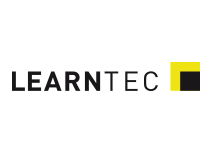LEARNTEC Congress: How findings from robotics, neuroscience and gaming influence learning
Around 90 international speakers - keynotes by AI expert Dr. Philippa Hardman and psychiatrist and bestselling author Prof. Dr. Volker Busch
Networked, sustainable, lifelong and individual: digital solutions have long been part of modern education. The LEARNTEC congress as part of the education trade fair of the same name from May 6 to 8, 2025 in Karlsruhe will focus on the latest developments in digital education in discussions, lectures and workshops. In addition to the rapid advances in the field of artificial intelligence, the agenda also includes derivatives from robotics and neuroscience and playful learning solutions.

For the opening keynote, computer scientist Prof. Dr. Jan Peters will speak on the topic of “Learning for robots: From biomimetic inspiration to intelligent technical systems and back!”. Peters will explain the insights that can be derived from machine learning for human learning. Artificial intelligence and its significance for professional development is the focus of the presentation by AI expert and Cambridge lecturer Dr. Philippa Hardman: she explains that a good strategy is needed for AI to actually add value in education.
On Wednesday, lecturer and start-up consultant Dr. Birgit Stelzer will give a talk on the future skill of innovation. “Learning, remembering and forgetting with digital media” is the topic of the keynote speech by biologist, brain researcher and author Prof. Dr. Martin Korte. He will explain why analog learning is still needed despite the progress made in digital education. The last day of the congress will be opened by neurologist, psychiatrist and bestselling author Prof. Dr. Volker Busch. His “Encouraging keynote” will explain against a neuroscientific background how people can maintain their courage and spirit of optimism in turbulent times.
Artificial intelligence remains the dominant topic
2024 is generally regarded as the year of generative AI, which has finally brought AI offerings out of the niche and into everyday life. In the field of e-learning, it is precisely the individualization of learning paths and AI-supported mentoring that offers advantages. Among others, Sonja Bruns from TeleTax will talk about “Individualized e-learning with the help of an AI assistant”, Prof. Dr. Jürgen Seitz from the Stuttgart Media University will explain AI avatars as “Educators, Evaluators, Advisors: What they can do, what we know and what we still need to learn”. A workshop by Daniel Stoller-Schai and Sven Kohlmeier, Digital Education Institute, on “Live Prompting and Legal Wrap” will take a look at the EU legal side of AI use.
The term gamification literally sums up learning by playing - an approach to making learning entertaining and therefore more motivating. At the congress, Wladimir Hettmann from Karlsruhe University of Applied Sciences will address this topic with a presentation on the use of language models in museums, as will Prof. Dr. Julia Thalmann, Ruhr-West University of Applied Sciences, with Tessa Thomas-Dingemann on “Revolutionizing Retail Marketing Education with Gamification in Virtual Reality”.
Hauke Stachow, The DO School Berlin, will focus on the importance of neuroscience for change management. Openness to change is part of lifelong learning and also plays a role for Josh Cardoz, Sponge, in the English-language conference session: “The Change Ready Learner: How People Enablement can Keep Pace with Organizations”.

Barrier-free Strengthening Act (BFSG): digital education for all
In June of this year, the BFSG comes into force, which obliges companies to make their products and services accessible. What this means for e-learning providers or software and hardware manufacturers is also part of the LEARNTEC congress. Svenja Schumann explains “Digital accessibility and the law: challenges and solutions.” Nina Jameson, Gehirngerecht Digital, takes a look at the practical implementation of the BFSG in her impulse on “E-learning for all: putting digital accessibility into practice.”
Sünne Eichler and Prof. Dr. Peter A. Henning from the LEARNTEC Congress Committee: “Artificial intelligence, learning design, AR/VR/XR, learning culture: the range of this year's congress program once again covers all facets of digital education, conveys the latest research results and provides insights into how companies and educational institutions have already successfully implemented digital education. It is never about digitalization as an end in itself: instead, the focus is on the intelligent use of modern technologies to make learning and teaching even more individual, efficient, sustainable and therefore more motivating.”


